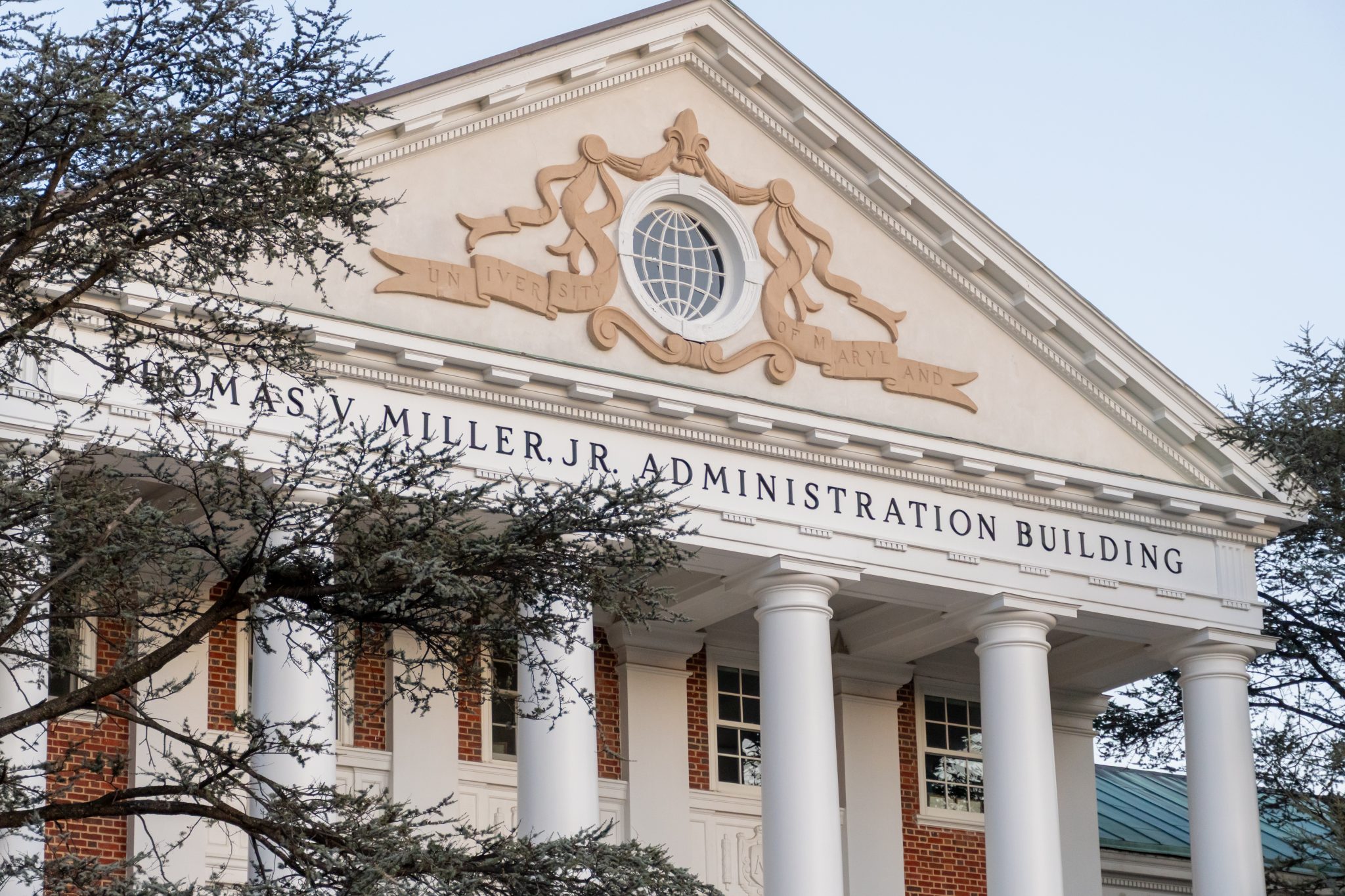Some University of Maryland faculty, staff and graduate assistants are concerned about increased workloads and fewer student resources after this university tightened hiring guidelines in response to potential funding constraints.
This university announced in an email on March 13 that it would pause creating new regular and contingent staff and faculty positions. Efforts to hire for existing and funded positions at this university will also require additional reviews of the position’s importance and financial viability from university officials, the guidelines read.
The changes come as the University System of Maryland faces a $111 million budget reduction and Maryland grapples with a nearly $3 billion projected deficit.
The state deficit follows U.S. President Donald Trump’s plans to downsize the federal workforce, alter tax codes and slash federal spending and safety net programs, according to the Maryland budget.
Some faculty and staff raised concerns about the future of courses taught by professors on contingent contracts. Contingent employees work for up to 12 months, according to this university’s human resources department website.
[UMD tightens hiring guidelines amid Maryland budget deficit]
History professor Karin Rosemblatt, president of the United Academics of Maryland-University of Maryland, said she predicts those courses could either be eliminated or taught by other staff or faculty members.
“Unless we’re going to curtail our enrollment and drop enrollment … we’re going to be shifting the burden of teaching those students to other faculty members and graduate assistants,” she said. “Other people are going to have to pick up the slack and are going to be having to do more work.”
The graduate school has policies entailing time commitments of graduate assistantships and these policies will not change, this university wrote in a statement to The Diamondback on Monday. Any graduate assistant asked to work more time than the policy states should seek support, the statement said.
Jen Patterson, an instructional technology specialist at this university’s information technology division, is worried the new guidelines will increase current staff and faculty members’ responsibilities and workload.
“The work doesn’t stop just because you stop hiring people,” Patterson said.
Patterson and Rosemblatt both said the funding and staffing uncertainty could harm students at this university.
Student services and support systems may be affected, Rosemblatt said, which could include fewer health center professionals and mental health services.
Students will also not get the same quality of service if there are not enough staff members, Patterson said.
The state budget is not yet finalized, this university wrote in a statement, and financial responsibility allows this university to “carry out our core missions of instruction, research and service.”
“We care deeply about our dedicated faculty, staff and students and recognize that our community members may be feeling concerns at this time,” this university wrote.
[Maryland House of Delegates passes budget plan with tax increases, spending cuts]
Rigby Philips, a graduate student studying history and library and information science, is worried that graduate assistantships, or office jobs typically held by graduate students, will be cut because of the budget changes.
“Because there are fewer of those jobs on campus — there are a ton of masters students — and we’re not guaranteed funding, I think that masters students could really be hurt by the budget cuts and the funding cuts,” Philips, a Graduate Labor Union organizer, said.
Graduate assistantships and department staffing decisions vary year to year based on the program and other factors, such as department structures, budgets and class sizes, this university wrote in a statement.
Assistantships give graduate workers job training and experience that are important to their futures, Philips said. Some students, such as Philips, also rely on graduate assistantships to aid tuition payment.
“If I didn’t have my [teaching assistantship], I would be paying tens of thousands of dollars for my degree, so I think losing that would have even more of an impact on my future than even missing out on the experience that I’ve gotten from my TAship,” she said.
Since assistantship workers often play a prominent role in undergraduate classes, the quality of undergraduates’ education can be affected if there are less assistantships, according to Philips.
“It is important to note that the budget cuts will not be distributed equally across the campus as a whole,” Philips said. “The graduate workers, the staff, are going to really be feeling this a lot more than any of the people actually making the decisions about how the budget cuts are distributed.”



